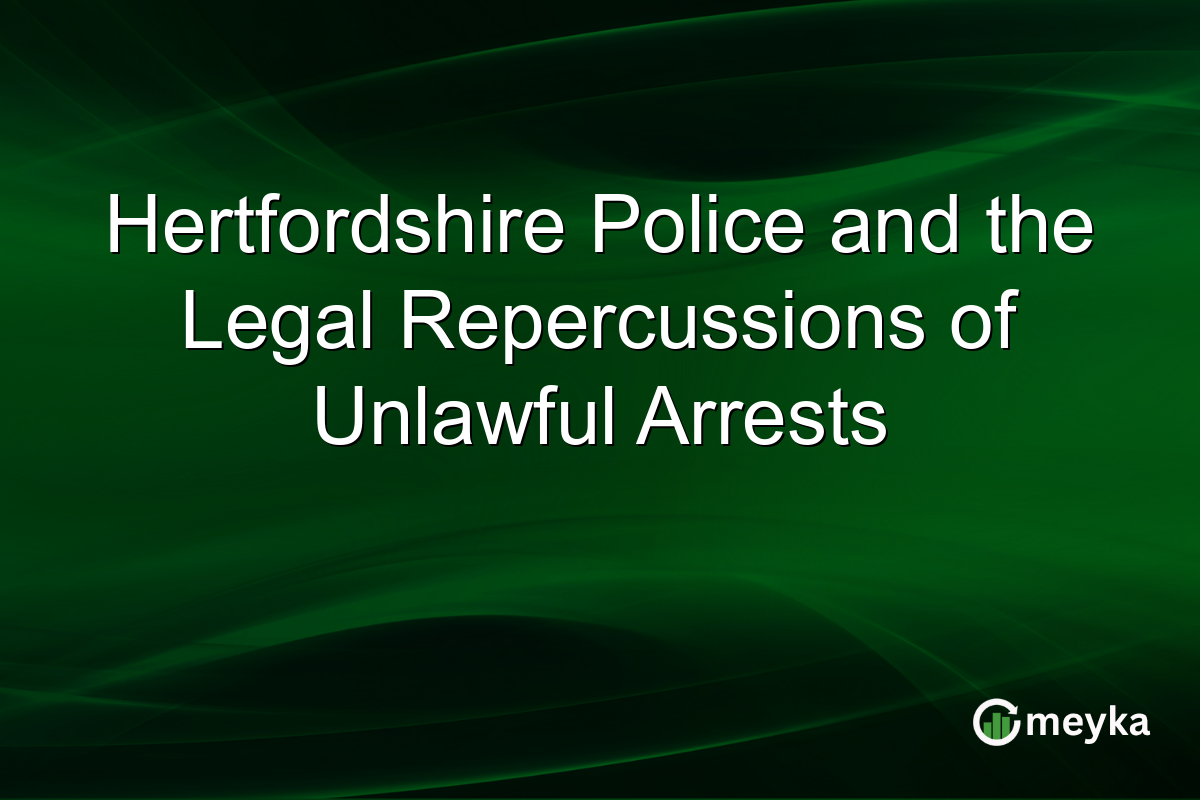Hertfordshire Police and the Legal Repercussions of Unlawful Arrests
Hertfordshire Police recently faced legal repercussions after admitting to unlawful arrests related to WhatsApp complaints. The incident involved wrongly detaining parents due to misunderstandings over digital communication. After public and legal scrutiny, Hertfordshire Police agreed to a £20,000 compensation. This situation highlights ongoing issues of police accountability and underscores the complexities of digital communication rights. These developments are crucial for maintaining public trust and legal clarity in such cases.
Continue Reading on Meyka
This article is available in full on our main platform. Get access to complete analysis, stock insights, and more.
Read Full Article →





